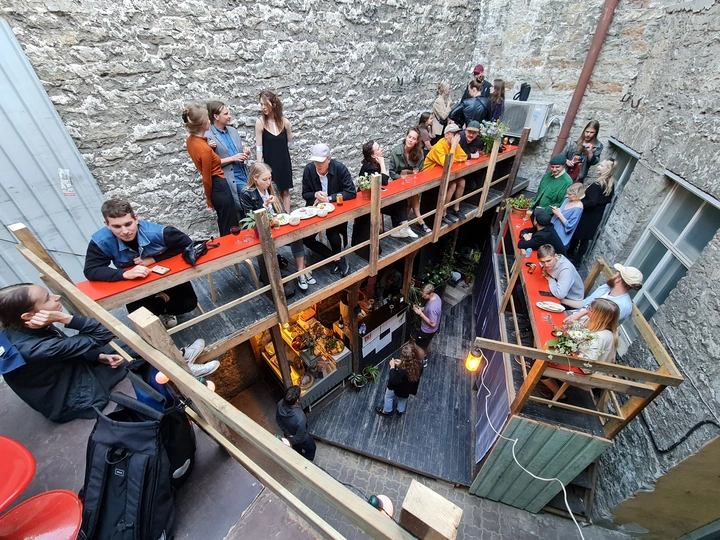ÕU Osteria and Office: Community Experiment

I’m an architect, researcher, and lecturer at the Estonian Academy of Arts, focusing on resource efficiency, the renewal of the built environment, and social equality. After graduating with an MArch, I began a practice-based PhD at the same university. My passion lies in using research and experimental projects to explore the evolving role of the architect and how architectural practice is changing.
Collaboration is an important part of my work. One of the most influential projects for me has been the ÕU Osteria and Office, which brought together many of my core interests and has significantly shaped my approach to architecture. My work is rooted in research, experimentation, and a search for new tools and methods in architectural practice. I enjoy working with gamification, storytelling, and co-design to develop approaches that are both creative and inclusive.
My PhD research focuses on the renovation of apartment buildings from a bottom-up perspective, aiming to identify affordable, inclusive solutions that also maintain architectural quality. One of my most important achievements to date is being selected as one of the curators of the Estonian Pavilion at the Venice Architecture Biennale 2025, where our theme closely aligns with my ongoing research.
In addition to architecture and research, I have participated in several exhibitions and find that writing is a key medium through which I enjoy expressing my ideas.
ÕU Osteria and Office is a venue located in Tallinn. It began as an experiment in combining a bar with an office space, with the aim of creating a self-sustaining community where income from the bar could finance the office operations. We started by renting a small courtyard and office rooms at a low cost, with a commitment to increase the value of the space through design and use.
We focused on using existing and salvaged materials, taking the project as a learning experience in how to design through reuse. The bar was built in just two weeks, during which we were simultaneously designing, building and sourcing materials. The whole design evolved based on the materials we were able to find. It became a pilot project in understanding the full lifecycle of creating architecture with reused materials - from time and cost management to rethinking the role of the architect.
It has also been a social experiment in community-building. The venue is self-built by a group of friends, who contributed their labor in exchange for pizza and drinks. Many of them now feel a personal connection to the space, creating a shared sense of responsibility and care - a community formed through participation.
ÕU has been a small scale, hands-on exploration of alternative financial and cooperative models in architecture. Looking ahead, I’m interested in scaling up from this experience - investigating new development models that foster collaboration between various stakeholders in the built environment. In recent years, I have been rethinking the concept of renovation. Rather than viewing it purely as a means to improve energy efficiency, I see it as an architectural opportunity to reshape our existing environments. Instead of relying on expensive high-tech solutions, I’m drawn to bottom-up strategies that build value through local engagement, material reuse, and collective action.